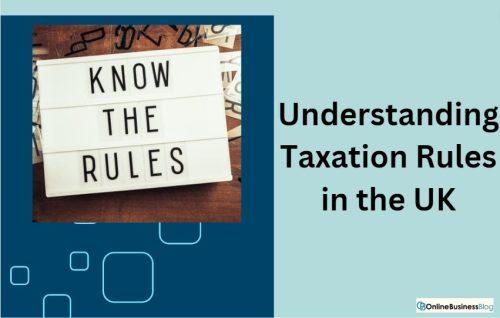Post Contents
Introduction
Assuming that you are based in the UK, there are a few options available to you for hiding money from taxes. In this blog post, you will learn about how to hide money from taxes in the UK. One option is to use a trust. Trusts can be used to protect your assets and income from tax. Another option is to use a shell company. Shell companies can be used to create a holding company for your assets, which can then be used to avoid paying taxes on your income. Finally, you could also use an offshore account. Offshore accounts can be used to hold your money in a jurisdiction where it will not be taxed.
How to Hide Money from Taxes in the UK?
Understanding Taxation Rules in the UK
There are a number of ways to reduce your tax bill in the UK, and many people take advantage of these opportunities. However, there are also a number of ways to illegally avoid paying taxes, and these activities can have serious consequences. It is important to understand the taxation rules in the UK so that you can make sure you are compliant with the law.

There are two main types of taxes in the UK:
- Direct taxes are levied on income, profits, and capital gains.
- Indirect taxes are levied on consumption. An example of an Indirect tax is Value Added TaxValue-added tax (VAT).
The government offers a number of reliefs and allowances that can reduce your tax bill. For example, if you are a basic-rate taxpayer, you will only pay 20% tax on your income. If you are a higher-rate taxpayer, you will pay 40% tax on your income. There are also a number of reliefs available for certain expenses, such as pension contributions and charitable donations.
If you do not pay your taxes, the consequences can be severe. You may be liable for interest rates and penalties on the amount owed, and in some cases, you may even be prosecuted. If you are found guilty of tax evasion, you could face a prison sentence of up to seven years.
It is important to remember that there is a difference between avoiding taxes and evading taxes. Avoiding taxes is legal while evading taxes is illegal. You should always take the time to understand the taxation rules in the UK before you make any decisions about how to deal with your taxes.
How to Hide Money from Taxes?
There are a number of ways to legally avoid paying taxes in the UK. Some of these methods may be more effective than others, depending on your individual circumstances.
- One way to reduce your tax bill is to make use of tax-efficient investments. These include ISAs and pensions, which are both exempt from capital gains tax and income tax. You can also invest money in trusts, which can be used to shelter assets from inheritance tax.
- Another way to reduce your taxes is to take advantage of available tax reliefs. These include the married couples’ allowance, the widowed parent’s allowance, and the blind person’s allowance. You may also be eligible for other reliefs, depending on your circumstances.

If you are self-employed, you can also minimize your taxes by claiming legitimate business expenses against your income. This could include office costs, travel expenses, and training costs.
Of course, it is also important to ensure that you are claiming all of the deductions and allowances that you are entitled to. This could include things like the home office deduction if you work or run a business from home, or the mileage allowance if you use your own vehicle for business purposes.
By taking some time to explore the different ways that you can legally avoid paying taxes in the UK, you can significantly reduce your overall tax bill.
Setting Up a Trust Fund
A trust fund can be an excellent way for you to protect assets and avoid paying taxes on them. But setting up a trust fund is not something you can do on your own. You will need to consult with a solicitor or financial advisor to get the process started.
There are many different types of trust funds, so it is important to choose the right one for your needs.
- One popular type of trust fund is bare trusts, which are often used for estate planning purposes. With a bare trust, the trustee has complete control over the assets in the trust and can distribute them as they see fit.
- Another common type of trust fund is a discretionary trust. This type of trust gives the trustees discretion over how to distribute the assets in the trust. This can be helpful if you want to provide for multiple beneficiaries or if you want to give the trustees flexibility in how they distribute the assets.
Once you have chosen the type of trust fund that is right for you, the next step is to select a trustee. The trustee will be responsible for managing the assets in the trust and ensuring that they are used according to your wishes. You can select an individual trustee or a corporate trustee, such as a bank or solicitors firm.
Once you have selected a trustee, you will need to transfer money or assets into the trust fund. Your money or assets will be added to the Trust wallet. This can be done by transferring ownership of property or investments into the name of the trustees. You will also need to put cash into a separate.
Strategies for Tax Reduction
There are a number of strategies that can be used to reduce the amount of tax that you pay in the UK.

These include:
- Making use of tax-exempt investments: There are a number of investments that are exempt from taxes, such as ISAs and pension products. This means that any earned money you invest in these products will not be subject to taxes.
- Taking advantage of tax reliefs: There are a number of tax reliefs available in the UK, which can help to reduce your overall tax bill. These include Relief for Employees, Married Couples Allowance, and Blind Person’s Allowance.
- Making use of HMRC’s Tax Calculator: HMRC’s Tax Calculator can help you to work out how much tax you should be paying based on your individual circumstances. This can help you to ensure that you are not paying more tax than you need to.
- Keeping accurate records: It is important to keep accurate records of all income and expenditures in order to calculate your taxes correctly. This includes receipts, bank account statements, and bills.
Other Tips for Legally Reducing Your Tax Liability
There are a number of other ways to legally reduce your tax liability in the UK.
These include:
- Making use of tax reliefs and allowances: There are a number of reliefs and allowances available to taxpayers in the UK that can help to reduce your overall tax bill. Some of these include the married couples’ allowance, the blind person’s allowance, and the disability allowance.
- Investing in an ISA: Individual Savings Accounts (ISAs) are a great way to save or hide money whilst also reducing your tax liability. This is because any money you save in an ISA is exempt from income tax and capital gains tax.
- Paying into a pension: Another great way to reduce your tax liability is by paying into a pension. Money that you pay into your pension is deducted from your taxable income, meaning that you will pay less income tax overall.
- Giving to charity: Donating money to charity or setting up a charity is another excellent way to reduce your taxes. This is because you can claim Gift Aid on any donations that you make, which will increase the value of your donation by 25%.
Conclusion
Hiding money from taxes in the UK can be a tricky process, but with the right knowledge and guidance, it is possible. There are a variety of legitimate ways to reduce your tax bills such as taking advantage of allowances, deductions, and capital gains exemptions. However, it is important to remember that attempting to evade or avoid paying taxes is illegal and could lead to serious consequences. Therefore, if you have any doubts or concerns about hiding money from taxes then we recommend seeking professional advice before proceeding.


